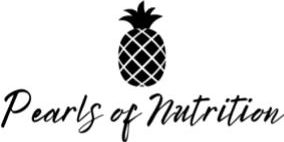People avoid egg yolks because of the cholesterol. Fun nutrition fact- sausage and cheese also contain cholesterol, great idea on that sandwich, guys. What exactly is cholesterol you ask? Well, I’d be delighted to tell you.
I’m sure you’re heard about the “good” and “bad” cholesterol in the blood. High Density Lipoprotein (HDL) is referred to as the “good” cholesterol whereas Low Density Lipoprotein is the “bad” cholesterol. HDL and LDL are not just cholesterol though, they are mixtures of protein, cholesterol, phospholipids, and triglycerides. The reason HDL has been dubbed as “good” is because it brings cholesterol from other parts of the body back to the liver to be reused or disposed of. LDL, on the other hand, has a higher percentage of cholesterol and delivers it’s components throughout the body. Basically LDL is like that evil shot girl passing out liquor to everyone making you feel like garbage-o and HDL is that healthy friend that makes you go running with her in the morning.
Except just kidding. Because you need cholesterol. Mainstream nutrition information tells us cholesterol is bad and will clog our arteries and choke out blood supply to the heart. The reality is cholesterol has a lot of sweet duties in our body. It’s the starter material for bile (which helps us to digest fat), vitamin D, and many hormones including cortisone, aldosterone, testosterone, and estrogen. Dudes, you like looking like dudes, right? You need cholesterol. Same with you, biddies. It is also a hugely important component of our cell membranes. You have 37,200,000,000,000 cells in your body. I’m actually not even exaggerating on that fact, check it here. Since I’m totally telling the truth you can see the necessity of cholesterol.
Want another fun nutrition fact? Our livers make cholesterol. In fact, our livers can be producing up to 1400 mg of cholesterol per day but a typical intake of dietary cholesterol is only about 300-450 mg per day. To make it even more interesting, the cholesterol that is absorbed in our intestines can actually come from cholesterol the body makes. Remember, I mentioned cholesterol is the starter point for bile? Well bile gets secreted into the intestines after eating to help us digest fat and our body actually absorbs the cholesterol in bile better than the cholesterol in our diet. And last fun nutrition fact on cholesterol- if you increase the amount of dietary cholesterol you take in your body will decrease the amount it makes. Likewise, if you decrease the amount of cholesterol you eat your body will increase the amount it produces. Isn’t science rad? Yeah I said that, shut up.
So the reality is dietary cholesterol does not significantly change the cholesterol in your blood. An increase of 100 mg of dietary cholesterol is only going to increase your total cholesterol by .056 mmol/L. This review goes over a ton of studies which shows an increase in dietary cholesterol does not have a negative effect on the cholesterol in your blood. There is a small portion of the population- those with high cholesterol and genetic factors (the apoE allele and the E4 phenotype)- who may be more sensitive to an increase in dietary cholesterol. In these individuals an increase in 300 mg cholesterol/day can raise blood cholesterol by 10%.
Moral of the story- eating the egg yolks wont give you heart disease. But guess what it WILL give you- NUTRITION! Whoop whoop! Look here for a great comparison of the nutrients in an egg white vs. an egg yolk. Crazy, right?! I also must mention the difference in grass-fed/pastured (yes I’m back to this again) vs. conventional eggs. When those little chickadoos get to eat the stuff they are supposed to (like bugs) they make their egg healthier. Free range eggs have higher amounts of vitamin A, vitamin E, beta carotene, and omega-3 fatty acids. Remember the spectrum. Pastured > free range > conventional.
I hope this all makes sense, please let me know if you have any questions! PS- egg bake, do it.

